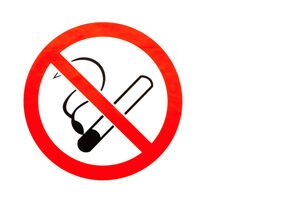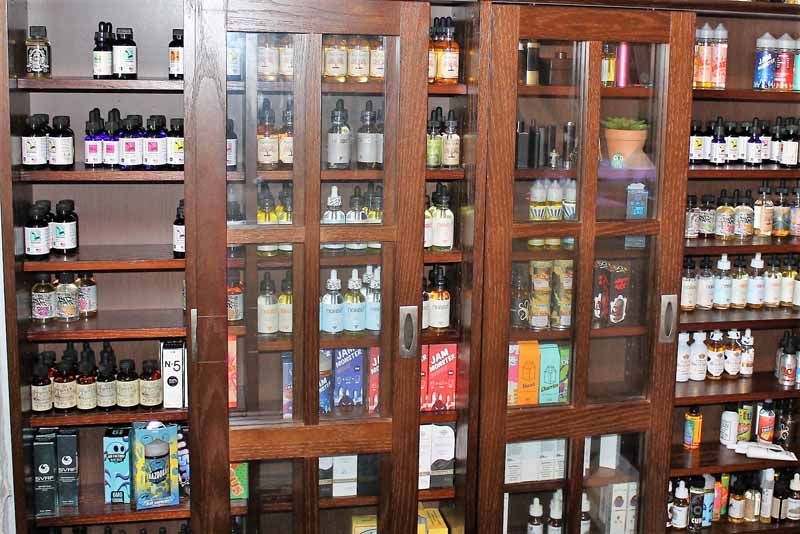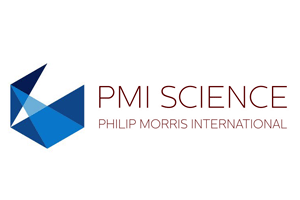Kuwait is intent on enforcing a tobacco smoking ban at educational institutions, according to a story in The Arab Times quoting the Al-Rai daily.
The deputy director-general for technical affairs at the Public Authority for the Environment (EPA) Mohammad Al-Enezi said EPA would soon make a tour of universities and colleges.
It intended to enforce an Environment Protection law that banned smoking inside educational institutions, including universities, colleges and applied institutes.
Al-Enezi said anyone caught smoking on campus or in building annexes would be fined KD50, while the institution would have to pay a fine of KD1,000 for its failure to protect its premises from smokers.
Category: People

Educational enforcement

Smoke, pets little danger
While it has been suggested that second-hand factors in asthma, such as environmental exposures to pets and tobacco smoke, impact disease control, a study conducted by investigators at the Nationwide Children’s Hospital suggests otherwise, according to a story in MD Magazine.
The study, Impact of Environmental Exposures (Second-hand Smoking and/or Pets) on Long-Term Asthma Control in Children was presented at the 2018 Annual CHEST Meeting in San Antonio, Texas, US.
In their three-year prospective cohort study, the team of investigators sought to evaluate the impact of environmental exposures in asthma control among children whose asthma is managed per National Asthma Education and Prevention Program (NAEPP) guidelines.
Ultimately, 395 children aged 2-17 years were included in the sample, with the majority of children having a diagnosis of either mild persistent asthma or moderate persistent asthma.
In 98 (25 percent) of the children, exposure to second-hand smoke was documented, while exposure to a pet (cat or dog at home) was recorded in 215 (55 percent) children.
Among the children with or without pet exposure or with or without second-hand tobacco exposure, no significant difference in demographics was recorded.
By 3-6 month follow-up visits, acute care need scores were said to have improved significantly, and throughout the thee-year follow-up, improvements persisted.
Covariation was measured through the inclusion of the two measured environmental exposures (second-hand cigarette smoke and/or animal exposure, such as cats and dogs).
From baseline, significant improvements were observed in both groups, which persisted throughout the three-year follow-up.
In asthma improvement over time, environmental exposures to second-hand smoke or animals were not significant covariates.
From their data, the study authors concluded that environmental exposures to pets or second-hand smoke were not significant factors in overall asthma improvement over time once asthma guidelines were followed. Consequently, the team ruled better asthma control over time required compliance with asthma guidelines.
Wellness at a cost
Employees of a US city who use tobacco products can expect to pay more for their health insurance starting in 2019, according to a WPXI story.
From January 4, tobacco-using employees of the City of Pittsburgh, Pennsylvania, will be the subject of a $50 monthly premium surcharge.
According to a letter sent to employees, they must complete and sign an affidavit, stating whether or not they are tobacco users.
The letter states that the city informed employees of the coming changes in October 2017.
According to the letter, employees who do not use tobacco for at least three months, or who participate in a cessation program, will not pay tobacco-user payroll contributions.
The letter introduced a new wellness platform administrator and said all employees’ wellbeing was valued by the City of Pittsburgh.
It said, in part, under a ‘What to look forward to’ heading: ‘The wellness program is designed to meet your specific wellness needs using these four wellness dimensions: mind, body, heart and spirit’.
‘This program is based on a points system and sets goals for employees to improve their wellbeing. These are called “MOJO Points” and when you earn a total 750 points you will be eligible for a reward,’ the letter said.
Questions over e-liquids
A Spanish member of the EU Parliament has asked the Commission if it intends to change the requirements for e-liquids labeling, and to run campaigns to educate people about the ‘toxicity of liquids and flavoring substances’.
In a preamble to three questions the Commission is due to answer in writing, José Blanco López said the use of refillable e-cigarettes and the potential exposure to liquids from e-cigarettes that contained high concentrations of nicotine posed risks to public health.
Twenty percent of people aged between 14 and 18 had tried this ‘new system’.
‘The majority of them do not know that it contains nicotine and many others take another type of drug due to the different way that they use e-cigarettes, according to the latest data from the Spanish National Committee for Preventing Tobacco Addiction,’ he said.
‘In accordance with European regulations in this area, namely Regulation (EC) No 1272/2008, Directive 2014/40/EU and Report COM (2016) 269 final, can the Commission say:
1) ‘Is it considering the possibility of carrying out a greater number of investigations on certain aspects of e-cigarettes which apply to refillable models, such as emissions checks and studies on the safety level of the flavouring substances and their blends?
2) ‘Does it intend to raise standards for labeling?
3) ‘Does it intend to launch informative and educational awareness-raising campaigns on the toxicity of liquids and flavouring substances?’
Dis-precautionary principle
The European Commission remains “cautious” toward novel tobacco and nicotine products while continuing to collect evidence about their impact on public health, according to a story by Sarantis Michalopoulos for EurActiv quoting a European Commission official.
Speaking on the side-lines of the European Health Forum in Gastein, Austria, Martin Seychell, deputy director-general for health and food safety, said the executive’s public health objective remained the same: the promotion of the idea that people should not become addicted in the first place – the prevention of addiction.
“Tobacco consumption still causes a lot of deaths, which would be easily preventable,” he was quoted as saying. “On novel tobacco products specifically, the legislation is very clear. We have adopted a cautious approach about these products.”
Michalopoulos said that electronic cigarettes and other novel tobacco products had emerged as alternatives to traditional smoking, which was responsible for nearly 700,000 deaths every year in the EU. The World Health Organization was in favor of stricter regulation of vaping, while the EU had adopted the precautionary approach in its Tobacco Products Directive.
EU Health Commissioner Vytenis Andriukaitis reportedly told EURACTIV that e-cigarettes were currently known for being “less damaging” than traditional smoking but that they still caused harm and people should not use them to cut smoking.
E-cigarettes most promising
A man who helped invent stop-smoking products such as nicotine patches and the prescription drug Chantix says that electronic cigarettes are one of the most promising developments in the field of smoking cessation, according to a story by Rishi Dasgupta published at dukechronicle.com.
Dr. Jed Rose, who is director of the Duke Center for Smoking Cessation, Durham, North Carolina, US, and a professor of psychiatry and behavioral science, said that currently more than 500,000 people in the US died every year of smoking related disease, a number that continued to rise. Cigarette smoking imposed a completely unacceptable burden of death and disease, he added.
Rose, who has studied nicotine since 1979, said smokers didn’t just crave nicotine; they also craved the physical action of smoking a cigarette.
“We’ve done studies where we’ve intravenously administered smokers with the same dose of nicotine they would get from a cigarette and found that this doesn’t satisfy their craving,” Rose said. “On the other hand, if they smoke a denicotinized cigarette, their craving is relieved quite a bit.”
Unlike other cigarette alternatives such as nicotine gum and patches, e-cigarettes replace the physical behavior of smoking and deliver nicotine in a way familiar to smokers.
Rose said the Duke Center for Smoking Cessation was doing a Juul trial and that there was “good reason to believe” it could help people quit smoking. And while the Food and Drug Administration claimed that e-cigarettes were introducing minors to nicotine, it was worth the risk.
“The ‘epidemic’ of youth addiction is greatly exaggerated,” Rose said. “This isn’t good, but it has to be weighed against the 500,000 preventable deaths that can be lessened using e-cigarettes.”
Rose said later that while e-cigarettes were less harmful than traditional ones, they still posed risks, including not just the obvious risk of addiction, but also the unknown effects of nicotine on adolescent brains and the trace amounts of cancer-linked compounds.
Nevertheless, Rose maintained that e-cigarettes were a much safer alternative to paper-and-tobacco cigarettes.
“Ultimately, if you’re going to do something, do the thing that’s less harmful,” Rose was quoted as saying. “We do that with things like safe sex and clean-needle exchanges for heroin users, so it should also apply to cigarette smoking—which kills more than all those other things put together.”
Rose was skeptical about e-cigarettes being gateways to tobacco. “If anything, restricting e-cigarettes may incentivize youth to try combustible cigarettes instead,” Rose said.
PMI on track
Philip Morris International and Scuderia Ferrari yesterday entered a new phase in their 45-year partnership with the unveiling of Mission Winnow, a new global initiative to create engagement around the role of science, technology and innovation as a powerful force for good in any industry.
The global initiative is taking to the tracks this week at the Formula 1 2018 Honda Japanese Grand Prix at Suzuka.
“Through Mission Winnow we want to let the world know how we have changed, to share our pride in the transformation that the people of PMI have achieved, as well as our dedication to rigorous science and innovation that can lead to a better future,” said André Calantzopoulos, PMI’s CEO.
“We will use this global platform as a window into the new PMI and to challenge preconceptions, as we know there are many who may have doubts about us and our motivations. Our partnership with Scuderia Ferrari gives us the opportunity to build on many encouraging individual conversations with critics and supporters alike and reach out to a broad audience to engage at scale.”
‘The word “winnow” (pronounced: “win”– “oh”) was selected because it perfectly describes the meticulous and disciplined route that PMI is following to achieve its ambitious vision of a smoke-free future,’ PMI said in a note posted on its website. ‘The word – and PMI’s vision – is about focus, transparency, care and single-minded determination.
‘”Winnow” originally referred to the removal of chaff from grain, but it came to be used more broadly to describe the separating out of the unnecessary, the extraction of the good and distinguishing what is true from what is inaccurate or misleading. For PMI, this is critically important in a world of information overload.
‘The company also believes it is critically important to adhere to an uncompromising commitment of continuous improvement through the dedicated and diligent pursuit of scientific and engineering excellence with an intense focus on details. This commitment and focus are creating a paradigm shift in the tobacco industry toward a better future.’
“Mission Winnow encapsulates our commitment to strive for better in everything we do,” said Calantzopoulos. “To winnow, or to discard old approaches, is what we at PMI are doing – we take learnings from past mistakes to shape our future.”
PMI said in its note that, in driving toward the future, it had chosen a path that was in all aspects very complex and faced many challenges. Like Scuderia Ferrari, the company had set a course forward, and there was no turning back: PMI had to progress constantly and rapidly, examining and analyzing the way ahead by learning every day and adjusting to improve at the next corner.
“Mission Winnow is about how we are transforming as a company, what we believe in and the way we work to enable a better future,” said Miroslaw Zielinski, president science and innovation at PMI. “Scuderia Ferrari is the ideal partner for Mission Winnow because of the team’s passion for innovation and drive to constantly improve in the quest for victory.
“We are launching Mission Winnow in the F1 circuit because motorsport fans understand there is no reverse gear in racing, only forward thinking and we believe they will want to share this vision.”
PMI said that Mission Winnow provided an insider’s view of two companies that operated in very different fields but had a great deal in common. ‘For both companies, success hinges on the passion of their people for the highest standards of performance in pursuit of overarching ambitions,’ it said. ‘Mission Winnow does not and will never advertise or promote any tobacco products. Mission Winnow is not about what, it is about how and why.
More information on Mission Winnow is at: www.missionwinnow.com or @missionwinnow on Facebook, Instagram and Twitter.
Flight ban
A ban on vaping electronic cigarettes on aircraft is one of the provisions of a five-year, US Federal Aviation Administration (FAA) Reauthorization Act, according to a press note issued by the Association of Flight Attendants – CWA (AFA) through PR Newswire.
The Act, which was said to have received overwhelming bipartisan support, included a large number of provisions such as, in respect of air quality, the introduction of technologies to combat contaminated bleed air; the safe transport of lithium batteries; and a study of oxygen-mask design.
‘Flight Attendants cheer the passage of the FAA Reauthorization Act of 2018 with a provision to combat flight attendant fatigue by increasing minimum rest from eight hours to 10 hours,’ AFA International president Sara Nelson said in a statement.
‘This bill closes a safety loophole while improving Flight Attendant health and achieving equal minimum rest with our flight deck counterparts.’
No tobacco contamination
Japanese Burley has been given the all-clear.
Japan Tobacco Inc. has been conducting pre-purchase tests for radioactive materials in Japanese domestic leaf tobacco since the accident at the TEPCO Fukushima Daiichi nuclear plant in 2011.
Other tests have been carried out at each stage of its production process.
‘Prior to this year’s Japanese domestic tobacco harvest, the company has again been conducting radioactive material testing on leaf tobacco before purchase, with the support of tobacco growers,’ JT said in a note posted on its website.
‘Testing of this year’s Burley have now been completed, showing none of the leaf tobacco tested exceeded the JT standard value (Radioactive cesium: 100 Bq/kg).
‘Furthermore, JT will continue with its scheme of testing domestic leaf tobacco after purchase, and testing and monitoring a number of times at each stage of the production process.
The pre-purchase tests were carried out on 24 samples from the Tochigi, Fukushima, and Miyagi prefectures by the company’s research centre using ORTEC germanium semi-conductor detectors.
Innovation the key
Philip Morris International has said that, given the right conditions, it could stop selling combustible cigarettes in less than a century.
PMI yesterday published a position paper giving its views on the eighth session of the Conference of Parties (COP8) to the World Health Organization Framework Convention of Tobacco Control (FCTC).
‘With more than one billion people expected to be smoking in 2025, PMI is urging the WHO, the hundreds of delegates convening in Geneva this week, and the wider public health community to embrace the potential of innovative alternatives to cigarettes in order to achieve the UN’s sustainable development goals for non-communicable diseases as quickly as possible,’ PMI said.
PMI acknowledged that smoking prevalence was in decline but argued that the pace of that decline could be much faster.
‘The landscape of tobacco and nicotine products has evolved significantly over recent years,’ the company said. ‘Not all tobacco products are the same with respect to their health risks. Moreover, rapid innovation offers opportunities to accelerate the downward trajectory of smoking prevalence.’
PMI said that, ultimately, it aimed to stop selling cigarettes entirely and was confident that this could happen in less than a century if smokers who would otherwise continue to smoke were proactively encouraged to switch to less harmful alternatives, which already exist but were either not well known or in some cases restricted.
‘Where these products have been adopted, for instance, in countries such as Japan and the UK, there have been unprecedented declines in cigarette sales,’ PMI said. Progress in these countries signals the potential for great change across the globe and is the core reason why PMI has publicly committed its future to being smoke-free, and continues to develop new science-based technologies and innovations that offer better alternatives to men and women who would otherwise continue to smoke.’
PMI’s policy-making recommendations published yesterday include:- Policies must continue to dissuade minors, ex-smokers, and non-smokers from using tobacco- and nicotine-containing products, while making better alternatives to cigarettes available to adults who smoke.
- Tobacco control policies should encompass tobacco-harm reduction strategies as well as supply and demand measures that encourage smokers who would otherwise continue to smoke to switch to better alternatives.
- There should be thorough, independent verification of manufacturers’ products and science to assess how ENDS [electronic nicotine delivery systems] and novel and emerging tobacco and nicotine products can support policies to reduce smoking prevalence.
- There should be national and global surveillance systems to study market trends. This surveillance should include data on product usage, including switching rates associated with different tobacco and nicotine products, to enable accurate reporting of smoking prevalence and the use of ENDS and novel and emerging tobacco products.
- Incentives should encourage investment and continuous research and development of less harmful alternatives, including the establishment of quality and performance standards for smoke-free products.
- Mechanisms should be established to enable transparent interaction and consultation between governments and producers of emerging tobacco and nicotine products.
The policy paper is at: https://www.pmi.com/resources/docs/default-source/newsroom/pmi-cop-position-statement.pdf?sfvrsn=41ff9cb5_10.










